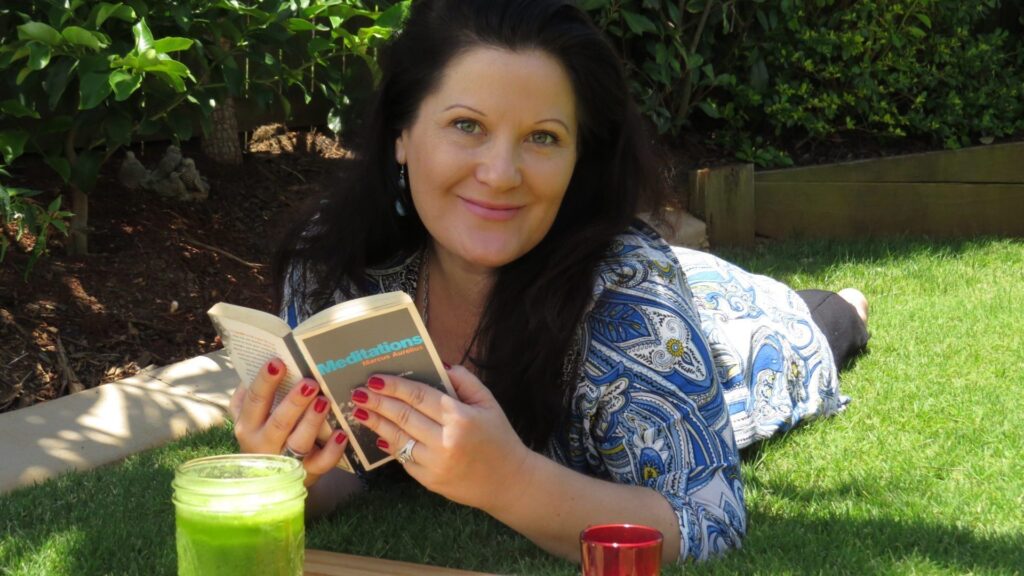Why hormones matter
When I hear the phrase “Don’t Shoot the Messenger”, I can’t help but think of hormones. Why?
Because our hormones are like the chemical messengers of our body. And as such, they have a massive responsibility for the health and wellness of the BodyMind. Not only do they talk to the organs and systems in our body – they talk to each other as well. Our hormones help coordinate almost every bodily function, from metabolism to growth and development, emotions, mood, sexual function, and even sleep [1].
And while they can create big problems with our health and wellbeing when there is an imbalance, it’s typically not their fault. The environment around us and the lifestyle choices we make with food, stress management, and exercise all have a huge part to play in keeping our hormones balanced and happy.
One of the important places where hormone imbalance can happen is in our gut.
The microbiome within our microbiome
In recent years the microbiome has finally been given the attention it deserves. Most people interested in their health are now familiar with the importance of good, balanced gut bacteria for maintaining health and wellbeing.
But for women, the microbiome is a little more complex, because there’s a special group of bacteria that work specifically for the female body. These bacteria are known collectively as the estrobolome, and when it comes to your hormone health, these little guys are just as important as other bacteria in your microbiome.
How the liver & gut work together
The liver processes estrogen then packages it up and sends it via bile to the gut. The estrobolome minimizes the reabsorption of estrogen from the gut allowing for safe removal from the body via stool or urine. This is a good thing for balanced hormones. The liver and gut work together to keep estrogen (and other hormones) in check.
However, when the estrobolome is compromised, the estrogen that was supposed to be excreted, can become unbound or free, becomes bioactive, and is reabsorbed back into the bloodstream, increasing circulating estrogen. Increased estrogen is an issue because it can then lead to estrogen dominance.
The problem with estrogen dominance
Estrogen is an amazing hormone. Without it, women wouldn’t be able to have babies. Its main function is to mature and maintain the reproductive system but it also protects a developing fetus.
As with many things in life, sadly you can have too much of a good thing. Of the four forms of estrogen – estrone, estradiol, estriol, and estetrol, it is estradiol (E2) that creates estrogen dominance when in excess.
Estrogen dominance can mean symptoms or conditions such as:
- Water retention.
- Breast swelling & tenderness.
- Heavy, irregular periods.
- Fatigue.
- Sugar cravings.
- Weight gain.
- Fibrocystic breasts.
- Mood swings.
- Uterine fibroids.
- Low thyroid symptoms.
- Anxiety.
- PMS.
- Endometriosis.
- Ovarian cysts.
That’s some list!
There are several risk factors that can create this excess – one of which is gut dysbiosis – where there is a problematic imbalance with gut bacteria, preventing the gut from doing its job. As far as estrogen is concerned, this occurs when beta-glucuronidase activity, a normal gut function, is over-expressed by Clostridia, Ruminococcacea, Eschericia, and Shigella families of bacteria.
The more beta-glucuronidase microbes in your gut produce, the less estrogen is excreted out of the body.
So what can be done?
It is possible to improve the gut bacteria in your estrobolome. The first place to start is what you put in your mouth. Keep it simple. You don’t need to radically overhaul your diet, try the latest food fad, or spend a heap of money on supplements. Sure, supplements can help, and may be needed for very compromised guts, but far better to get a solid foundation in place and then address further support needs via supplementation as required.
Better Gut Balance = Better Hormone Balance
You want to focus on eating real food, reducing processed and packaged foods, drinking more water, and adding more movement into your day. See below for an example of how you can integrate these changes into your life, so they become a part of your lifestyle. To get more support to make the changes you need, see a trusted medical or health practitioner.
And please take note, that if you have yet to hit perimenopause, then you also want to pay particular attention to your gut. One of the best things you can do for your body, in preparation for normal hormonal fluctuations that will occur, is to ensure you have a healthy microbiome and estrobolome. This will enable your body to better manage the natural perimenopausal hormone fluctuations, minimizing the symptoms you will experience.
5 easy changes in 5 weeks
WEEK 1 – ADD:
- A tablespoon of fermented vegetables to your evening meal.
- Choose from sauerkraut, kimchi, kvass, kiefer, kombucha.
WEEK 2 – DECREASE:
- Sugar, choosing smaller portions or try swapping.
- Swap soda for water.
- Swap sugary treats for fruit and veggie sticks and nuts.
WEEK 3 – ADD:
- Cruciferous vegetables to your evening meal.
- Choose from broccoli, cauliflower, cabbage, brussel sprouts, kale.
WEEK 4 – INCREASE:
- Water, sipping throughout the day.
- Fill a large jug with 6 glasses of water – if you don’t get through it, try to do better the next day.
WEEK 5 – ADD:
- 15 minutes of enjoyable exercise each day.
- A brisk walk, dance to music, find a free, fun YouTube workout.
References:
[1] https://my.clevelandclinic.org/health/articles/21201-endocrine-system
[2] https://pubmed.ncbi.nlm.nih.gov/31636122/
Featured image by Christopher Campbell on Unsplash.
Author:
Cherie
Cherie is a holistic health copywriter and nearing completion of the Women’s Holistic Hormone Health Practitioner Certification Course with the MindBodyFood Institute. She lives in regional Victoria, Australia, with her two children, and aims to use her skills to educate, inform and empower women at all stages of life.
DOWNLOAD OUR COURSES GUIDE
Learn More About Our Course Offerings and Discover Which New Wellbeing Career Best Suits Your Passion!








